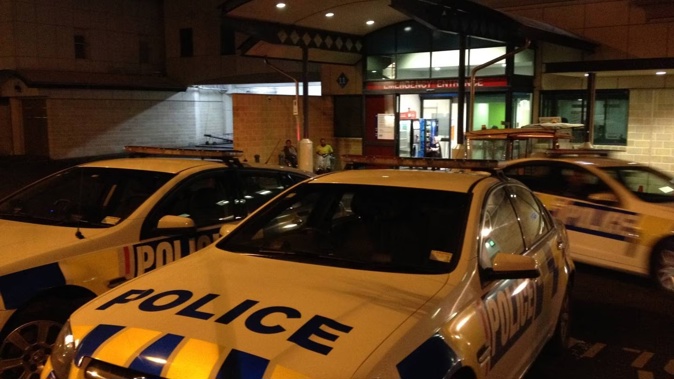
Long wait times in emergency departments, exacerbated by staff shortages, are being blamed for an increase in violence, abuse and harassment in New Zealand hospitals.
Figures released to Newstalk ZB through the Official Information Act show police callouts to health locations – such as hospitals, medical centres and clinics - for harassment and threatening behaviour have nearly doubled in four years.
Callouts for harassment and threats increased from 226 in 2018 to 424 last year.
Police also responded to 590 “acts intended to cause injury” last year, compared with 478 in 2018 – and 461 motor vehicle thefts, compared with 263 four years ago.
New Zealand Nurses’ Organisation (NZNO) president Anne Daniels said she had witnessed increasing abuse and threatening behaviour in emergency departments (EDs).
“I can imagine the same frustrations are in all of those sectors ... but [ED] is where frustrations usually come out, and it’s also where people who are under the influence of drugs and alcohol tend to present.”
Daniels remembered a situation where three police officers were required to calm a patient who was physically threatening her, and said she had also had her life verbally threatened.
National Party health spokesman Dr Shane Reti said the reported number of police callouts didn’t reflect the frequency with which health workers were telling him about the problem, which were growing.
/cloudfront-ap-southeast-2.images.arcpublishing.com/nzme/TOJV4TOA4BAC7JB7VH52DLZDAI.JPG)
“Unfortunately they’ve built a level of tolerance and it’s got to be a relatively significant event before they’ll document it in something that appears in these figures,” he said.
“And that shouldn’t be the case, that they have to normalise some level of criminal behaviour ... before they report it.”
Te Whatu Ora Health NZ said there has been an increase in “challenging behaviours” in specialist or emergency services, and the agency had actions under way to respond to violence and aggression in the workplace.
Daniels said incidents were becoming more frequent alongside increasing ED wait times.
“When you reach out for help in a health organisation like an emergency department ... you go there expecting to get care when you need it,” she said.
“But what’s happening is more and more people are waiting longer and longer and the frustration is just boiling over.”
She said the problem was a simple one.
“We don’t have enough nurses, doctors, midwives, health care assistants ... to actually do the job that needs to be done.”
/cloudfront-ap-southeast-2.images.arcpublishing.com/nzme/L2G2HPOO2VLCTXSY3RO57BAMW4.jpg) Nurses' Organisation president Anne Daniels says New Zealand does not have enough health workers.
Nurses' Organisation president Anne Daniels says New Zealand does not have enough health workers.
This month the Government announced 32 new health roles were being added to the Green list straight to residency pathway – joining doctors and nurses – in a bid to plug health workforce gaps in time for winter.
Reti also linked increased police callouts to longer wait times in EDs — which had blown out in 32 of 37 Te Whatu Ora hospitals over the past five years.
“We know six hours is the target - that’s a long time to wait in an emergency department, but we also know hundreds are waiting more than 24 hours in the emergency department,” he claimed.
Reti said that generated understandable frustration but didn’t mean people should take it out on healthcare workers.
However, he said this provided guidance towards potential solutions: Boosting the workforce and clearing ED wait lists.
When approached for comment, Health Minister Ayesha Verrall and Immigration and Workplace Relations and Safety Minister Michael Wood directed inquiries to Te Whatu Ora.
Te Whatu Ora hospital and specialist services national director Fionnagh Dougan said its staff had a right to feel safe in their workplace.
The health body encouraged the reporting of incidents and calling the police if needed.
“Our prevention programmes include training for staff in de-escalation procedures, the design of workplaces, the provision of staff to support care, and systems and processes to support safe and effective delivery of that care.”
She said some of the emergency services provided involved caring for vulnerable patients with challenging behaviours – which had increased in recent years.
“However, we also recognise that high client and patient volumes, and increasingly complex needs, can be exacerbated by staffing pressures across all services.”
Take your Radio, Podcasts and Music with you








